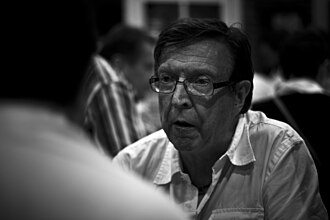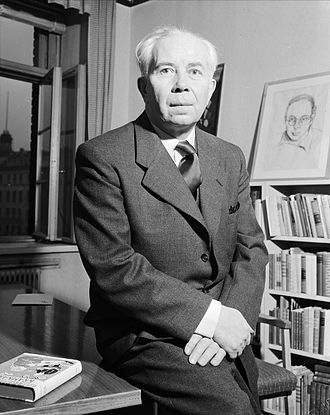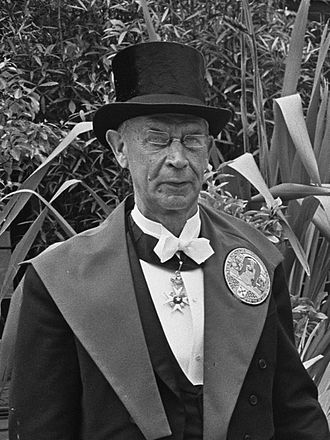Discover Your Roots
SIGN UPDiscover Your Roots
SIGN UPIvar is a Scandinavian male name with a rich history and meaning. Derived from the Old Norse Ívarr, it signifies "yew," a type of tree with symbolic significance in Norse culture. The name's etymology is multifaceted, possibly incorporating elements such as "warrior," "horse," and "protector." Ivar has been embraced in various forms across different languages, including Ivor in English, Ìomhar in Gaelic, Aivar or Aivo in Estonian, and Ivars in Latvian. Notable historical figures bearing the name include Ivar the Boneless, a Viking king, and Ivar Aasen, a renowned Norwegian lexicographer. Furthermore, the name has been associated with a host of modern individuals across diverse fields, from wrestling and politics to music and literature. In fiction, Ivar the Timewalker is a prominent character in the Valiant Comics universe.

Ivar Jenner, born on January 10, 2004, is a talented professional footballer from the Netherlands, currently playing as a midfielder for Eerste Divisie club Jong Utrecht. Jenner's journey in football began in the IJsselstein-based academy side IJFC and Ajax before making a move to Utrecht in 2016. He signed his first professional contract with Utrecht in May 2021 and later extended his stay with a new three-year deal in August 2023. Not only has he represented the Netherlands at the under-15 level, but Jenner also holds Indonesian citizenship, enabling him to represent the Indonesia national team. He made his debut for the senior team against Palestine in a 0–0 draw and played a crucial role in Indonesia's historic first-ever knockout stage appearance in the 2023 AFC Asian Cup. His impressive performance earned him a spot in the final squad for the tournament. Jenner's career statistics and achievements reflect his dedication and skill, making him an exciting prospect in the world of football.

Ivar Hjalmar Jacobson, a renowned Swedish computer scientist and software engineer, is celebrated for his significant contributions to the field. Born on September 2, 1939, in Ystad, he obtained his Master of Electrical Engineering degree from Chalmers Institute of Technology in Gothenburg in 1962. Notably, Jacobson played a pivotal role in the development of UML, Objectory, Rational Unified Process (RUP), aspect-oriented software development, and Essence. His impactful journey began at Ericsson, where he proposed software components and invented sequence diagrams and collaboration diagrams. Later, at Rational Software, he, along with his colleagues, became the original developers of UML, and his Objectory Process evolved to become the Rational Unified Process. Jacobson's remarkable contributions extend to the creation of the Essential Unified Process (EssUP) and Essence, an OMG standard since November 2014. Throughout his career spanning over 50 years, Jacobson has published numerous books and articles, solidifying his status as an influential figure in the software engineering realm.

Ivar Lo-Johansson (23 February 1901 – 11 April 1990) was a renowned Swedish writer known for his works in the proletarian school. He gained international recognition when his autobiographical memoir, "Pubertet" (Puberty), received the Nordic Council's Literature Prize in 1979. Born Ivar Johansson in Ösmo, he later adopted the name Ivar Lo-Johansson in his twenties. He authored over 50 proletarian novels and short stories, depicting vivid portrayals of the working class and advocating for social reform. His impactful literary works, such as "Godnatt, jord" (Good night, earth) and "Jordproletärerna" (Proletarians of the Earth), played a significant role in addressing social inequality in Swedish society, particularly in the plight of landless Swedish peasants. Furthermore, his memoirs and extensive writings continued to reflect his commitment to portraying the world from the perspective of the underprivileged. His legacy lives on through the Ivar Lo Society, which preserves his apartment in Stockholm as a museum, and the Ivar Lo Park in Stockholm, named in his honor. Ivar Lo-Johansson's literary contributions have left an indelible mark on Swedish literature and society.

Ivar Waller (11 June 1898 – 12 April 1991) was a renowned Swedish professor of theoretical physics at Uppsala University. He is best known for his significant contributions to the theory of X-ray scattering by lattice vibrations of a crystal, which expanded upon the earlier work of Peter Debye. Notably, Waller introduced the Debye–Waller factor in his doctoral thesis in 1925, providing a definitive treatment of the impact of thermal vibrations in X-ray crystallography. Throughout his illustrious career, he was recognized for his expertise and dedication, becoming a member of the Royal Swedish Academy of Sciences in 1945 and serving on the Nobel Committee for Physics from 1945 to 1972. Waller's influence extended to his students, including the notable quantum chemist Per-Olov Löwdin, whom he mentored during their doctoral studies. His legacy continues to inspire and shape the field of theoretical physics.

Ivar Frounberg, born on April 12, 1950, in Søborg, is a notable Danish composer, organist, and professor emeritus of composition at the Norwegian Academy of Music. He initially pursued education as an organist and later studied composition with influential figures such as Niels Viggo Bentzon, Ib Nørholm, Morton Feldman in the USA, and Iannis Xenakis in Italy. Frounberg's extensive career includes serving as a senior professor of composition at the Norwegian Academy of Music in Oslo and as a docent of composition and electroacoustic music at the Royal Danish Academy of Music.Throughout his career, Frounberg has shown a keen interest in music as abstract structures, evident in works such as Embryo and What did the Sirens Sing as Ulysses sailed by?. The latter, composed for live-electronics and orchestra, reflects Frounberg's deliberate ambiguity in music, capturing the essence of how music is experienced in today's media world. His compositions are openly structured, allowing conductors to blend different musical elements, resulting in a unique experience with each performance. Frounberg's contributions have been recognized with accolades such as the Danish Arts Foundation's three-year grant and the Carl Nielsen Prize.For more information about Ivar Frounberg, you can refer to his profile at the Danish Composer's Society, his biography at Edition S, and his personal website.
All images displayed on this page are sourced from Wikipedia or Wikimedia Commons.We use these images under their respective Creative Commons or public domain licenses. Wherever applicable, author attributions and license information are provided. If you believe an image is used incorrectly or outside its license terms, please contact us so that we can review and correct the issue.